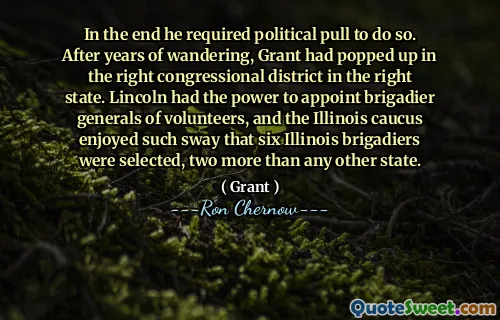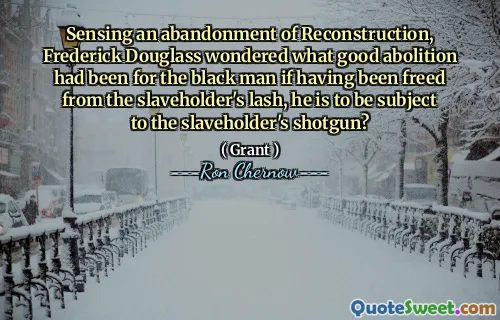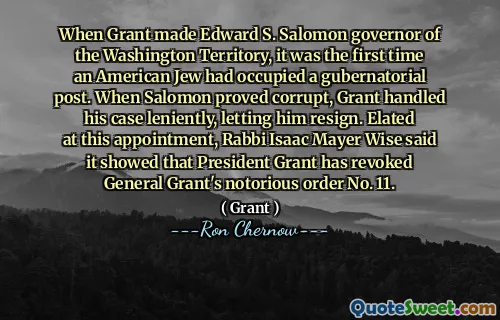
When Grant made Edward S. Salomon governor of the Washington Territory, it was the first time an American Jew had occupied a gubernatorial post. When Salomon proved corrupt, Grant handled his case leniently, letting him resign. Elated at this appointment, Rabbi Isaac Mayer Wise said it showed that President Grant has revoked General Grant's notorious order No. 11.
This quote highlights a significant milestone in American history, reflecting a moment when Ulysses S. Grant demonstrates a commitment to racial and religious inclusion through his appointment of Edward S. Salomon as governor of the Washington Territory. Historically, this period was marked by deep societal divisions and prejudices, yet Grant's decision to appoint Salomon signals a progressive stance towards Jewish Americans and minority rights. The fact that Salomon's corruption was met with leniency underscores Grant's emphasis on justice and due process, rather than immediate punishment based solely on identity or perceived transgressions.
Rabbi Isaac Mayer Wise's enthusiastic response indicates that this appointment was seen not only as a political achievement but also as a symbolic victory against prejudice. The celebration of granting a Jewish individual a gubernatorial role showcases a growing recognition of religious and ethnic diversity within the political landscape of the United States.
Furthermore, the comment about Grant revoking Order No. 11, which was a controversial and aggressive military proclamation targeting Southern Jews and other groups during the Civil War, signifies a shift in policy and attitude. It reflects an attempt by Grant to move toward more inclusive governance and possibly to atone for past actions that marginalized specific communities.
Overall, this excerpt encapsulates a crucial moment where political leadership and social progress intersect. It demonstrates how individual decisions by prominent leaders can serve as catalysts for broader societal change. The appointment of Salomon and the subsequent reactions exemplify the tension and hope inherent in a nation grappling with its ideals of equality and justice amidst ongoing challenges.









